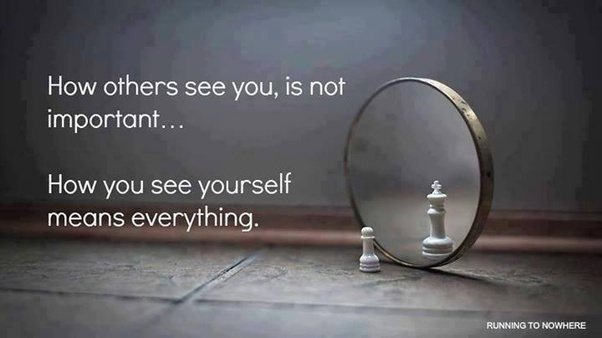Book Appointment Now

Self Belief Is Power
Self belief becomes a prerequisite to living life to the full. You are worthy of experiencing life at it’s very best. To willfully experience less, would be to abdicate your personal responsibility in co-creating your best life. You have to believe in your greatness before you can fully express your greatness in this world. Your present moment, now, is when it is no longer anyone’s fault for your lack of self belief. You must accept full responsibility to build up what you allow others, or yourself, to break down.
- Stop bullying yourself.
- Replace criticism with encouragement.
- Come to terms with the fact that it’s OK not to be perfect.
- Let go of the guilt attached to things outside of your control.
- Accentuate your positives, rather than exaggerate your negatives.
- You are not responsible for everything.
- Choose your focus wisely.
- Become a visionary, instead of becoming a victim.
Our levels of self belief do not just determine who we become, it determines how we experience life; and how we are experienced. How we see ourselves means everything.
“Once we believe in ourselves, we can risk curiosity, wonder, spontaneous delight or any experience that reveals the human spirit.” – E.E. Cummings
Definition
Selfbelief, or selfconfidence, is your thoughts. Thinking on the way that you feel about your skills, abilities, looks and behaviours. A person with self belief may learn things quickly, trust that they can complete tasks to a good standard or appear attractive to others.
We can help you with your self belief and issues of self confidence – give us a call.





[…] Researchers had found that chronic exposure to a stress hormone causes modifications to DNA in the brains of mice. This prompting changes in gene expression. In recent years researchers have learned that trauma can be inherited due to changes in DNA, and that “The effects of trauma which can be transmitted to the offspring can be reversed by a positive experience.” […]
It’s fascinating how much we’re learning about the interplay between trauma and genetics. The fact that chronic exposure to a stress hormone can modify DNA in the brain highlights the profound impact our environments and experiences have on our biology. It makes me think about how stress doesn’t just affect us in the moment but can have ripple effects across generations.
You’re touching on a crucial point. The connections between our experiences and genetics are certainly captivating, and they challenge a purely deterministic view of how our biology works. The idea that chronic exposure to stress hormones can alter DNA is a groundbreaking revelation that has implications far beyond individual health. It raises questions about how we understand generational trauma and its effects on future descendants.
You make a really insightful point about the relationship between our experiences and genetics. It’s fascinating to think about how chronic stress not only impacts us in the moment but could also have ripple effects for future generations. I recently read about epigenetics and how environmental factors can actually influence gene expression. It made me reflect on my own family history—how the experiences of previous generations could unknowingly shape our traits, behaviors, and vulnerabilities.
It is indeed fascinating, and the way you put it highlights the intricate relationship between our internal biology and external experiences. The idea that chronic exposure to stress hormones can lead to such profound genetic modifications really opens up a lot of questions about resilience and vulnerability.
You’ve touched on such a crucial aspect of our health and well-being. The connection between chronic stress and genetic modifications really does raise intriguing questions about how adaptable—or vulnerable—our bodies can be in the face of ongoing challenges. It makes me think about resilience in a broader context, not just on a personal level but also in how communities can support each other in stressful times.
You’ve touched on a really important point, and it’s something that I find myself pondering quite a lot. The brain and body are in constant conversation, and that exchange shapes everything from our behaviors to our physical health. When we look at the impact of stress hormones, it’s striking to think about how they can alter gene expression. This isn’t just a theoretical concept—it’s a real process that happens every day.
It’s true, the relationship between trauma and genetics is incredibly intriguing and complex. The idea that chronic exposure to stress hormones can lead to actual changes in our DNA really illustrates how interconnected our experiences and our biology are. It’s a reminder that our bodies are not just passive recipients but active participants in shaping our health.
The connection between stress, trauma, and DNA is fascinating and opens up a lot of important conversations. When we think about how chronic exposure to stress hormones modifies DNA, it highlights the intricate relationship between our environment and biology. It’s not just about individual experiences anymore; it’s about how those experiences can transcend generations.
It’s fascinating how the effects of stress can ripple through generations, isn’t it? The connection between trauma, DNA modification, and gene expression really opens up new avenues for understanding mental health. The idea that positive experiences can reverse these inherited effects is uplifting. It suggests that healing isn’t just an individual journey but something that can benefit whole families.
You bring up some important points about the connection between stress, trauma, and how these experiences can imprint on future generations. It’s compelling to think that genetics can shift in response to trauma, shaping not just individual lives but the lives of their children, too. The idea that negative experiences can have lasting impacts is sobering, but the notion that positive experiences can counteract those effects is enlightening.
It’s fascinating how the effects of stress hormones can ripple through generations. The idea that trauma can modify DNA and influence gene expression really highlights the complexity of our biology and how it interacts with our environment. When we talk about the potential for positive experiences to reverse some of these inherited effects, it brings up a compelling point about the power of resilience and healing.
[…] Self-Confidence : There’s something about being naked that forces you to face your flaws in the mirror. Eventually, you’ll become more comfortable in your own skin, and things won’t […]
I can definitely relate to the idea that being naked helps confront our flaws in a very raw and honest way. It’s like stripping away all the layers—both literal and metaphorical—that we usually hide behind. In those moments, you really do get to appreciate your body for what it is, imperfections included.
You raise a compelling point about the layers we hide behind when it comes to body image. Stripping away those layers, both physically and emotionally, forces us to face the truth of our selves—raw, honest, and sometimes uncomfortable. That confrontation invites a different kind of appreciation. It’s not just about seeing our bodies without the trappings of clothing; it extends to recognizing how societal expectations shape our self-perception.
That’s such a great point about being naked and facing our flaws. It’s interesting how vulnerability can actually help us grow. When you strip away the layers—literally and metaphorically—it forces us to confront our insecurities head-on. It can feel uncomfortable at first, but that’s where the real change happens.
Nudity really does put a spotlight on our perceived flaws, doesn’t it? There’s nothing like standing in front of a mirror, fully exposed, to remind you of that extra slice of pizza you didn’t need. But you hit the nail on the head—eventually, you start to embrace those quirks.
You’re spot on about nudity bringing those perceived flaws into sharp focus. It’s like we can’t help but scrutinize every little detail, from that extra slice of pizza to the things we might usually overlook. What’s interesting is how that moment in front of the mirror becomes a kind of awakening. At first, there’s that initial discomfort, but then, as you said, embracing those quirks can feel pretty liberating.
I really resonate with what you’re saying about that mirror moment being both uncomfortable and enlightening. It’s funny how nudity strips away the layers of pretense we often wear, not just physically but mentally too. That initial discomfort can feel so vulnerable, but it’s also a chance to confront those self-critical thoughts we carry around all the time.
I really resonate with that idea of nudity serving as a sort of catalyst for self-reflection. It’s interesting how being vulnerable, even just in front of a mirror, can make us confront those insecurities we often push to the back of our minds. I’ve noticed that it’s not just about physical flaws, but also a reflection of how we view ourselves in a broader context—social pressures, diet culture, and all that.
You’ve touched on something really profound with the idea of nudity acting as a catalyst for self-reflection. It’s interesting how stripping away layers, both literally and figuratively, can force us to confront those discomforting aspects of ourselves that we often overlook. Standing in front of a mirror, you’re not just seeing your body; you’re also confronting years of social narratives, often shaped by external expectations and cultural norms.
You’re so right; nudity can act as a mirror, reflecting not just our physical traits but also the way we perceive ourselves. That moment in front of a mirror can sometimes feel like a reckoning, doesn’t it? The self-critique often kicks in right away—whether it’s that extra slice of pizza or other perceived imperfections. It’s interesting how our minds often gravitate toward those thoughts rather than celebrating our bodies or acknowledging the experiences tied to them.
Nudity really does shine a harsh light on how we see ourselves, doesn’t it? Standing there, all exposed, can be a real wake-up call. That extra slice of pizza lingers in our minds like a badge of shame. It’s interesting how much weight we assign to these moments. A simple reflection can trigger intense self-criticism instead of self-acceptance.
It’s fascinating how vulnerability in its most literal form, like being naked, can peel back layers not just of our skin but of our insecurities too. When you stand in front of that mirror, there’s nowhere to hide. It’s a moment that can feel awkward, maybe even daunting, but there’s something liberating about it. I think that moment of confrontation allows us to really start digging into what self-acceptance looks like.